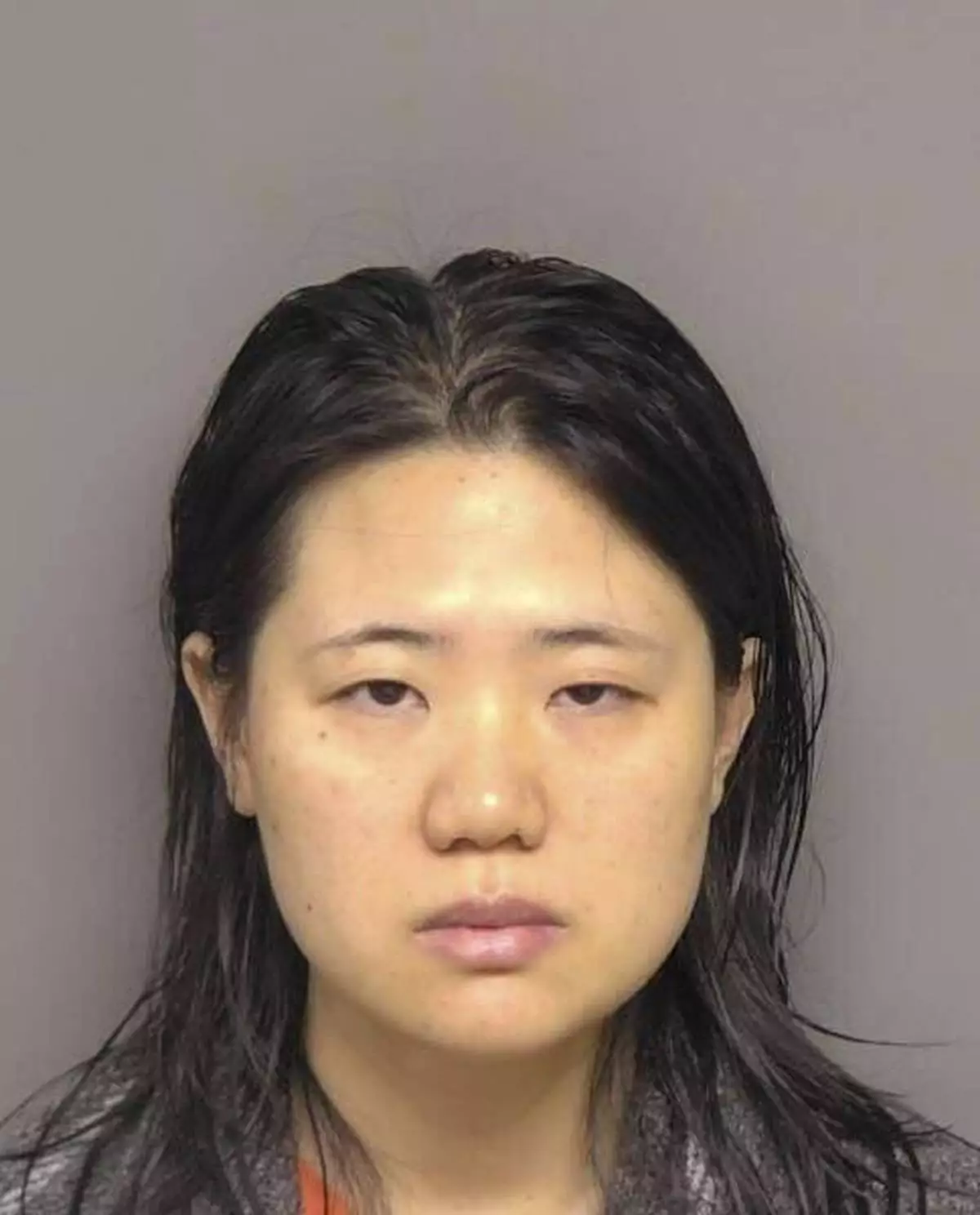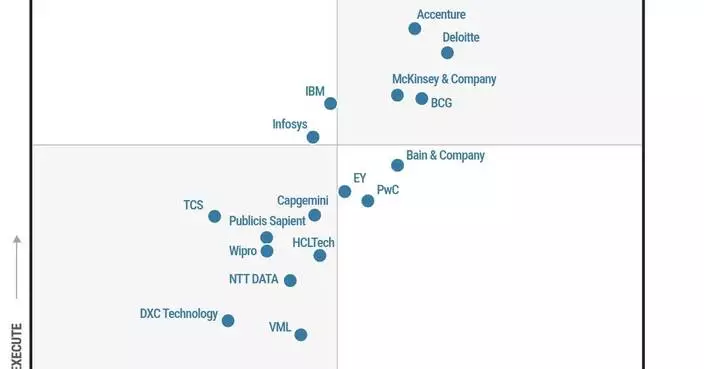DETROIT (AP) — Two Chinese scientists accused of smuggling or shipping biological material into the United States for use at the University of Michigan will remain in custody after waiving their right to a hearing Friday in federal court.
Yunqing Jian and Chengxuan Han said in separate court appearances in Detroit that they would not challenge the government's request to keep them locked up while their cases move forward.
“This is a constantly evolving situation involving a large number of factors,” Han's attorney, Sara Garber, told a judge. She didn't elaborate and later declined to comment.
Han was arrested Sunday at Detroit Metropolitan Airport after arriving on a flight from China, where she is pursuing an advanced degree at Huazhong University of Science and Technology in Wuhan. She planned to spend a year completing a project at the University of Michigan lab, and is accused of shipping biological material months ago to laboratory staff.
It was intercepted by authorities. The FBI, in a court filing, said the material is related to worms and lacked a government permit. Experts told The Associated Press it didn't appear to be dangerous.
Jian's case is different. She is charged with conspiring with her boyfriend, another scientist from China, to bring a toxic fungus into the U.S. Fusarium graminearum can attack wheat, barley, maize and rice.
The boyfriend, Zunyong Liu, was turned away at the Detroit airport last July and sent back to China after authorities found red plant material in his backpack.
Jian, who worked at the university lab, was arrested June 2. Messages between Jian and Liu in 2024 suggest that Jian was already tending to Fusarium graminearum at the lab before Liu was caught at the airport, the FBI said.
Jian's attorneys declined to comment Friday.
Federal authorities so far have not alleged that the scientists had a plan to unleash the fungus somewhere. Fusarium graminearum is already prevalent in the U.S. — particularly in the east and Upper Midwest — and scientists have been studying it for decades. Nicknamed “vomitoxin” because it’s most known for causing livestock to throw up, it can also cause diarrhea, abdominal pain, headache and fever in animals and people.
Researchers often bring foreign plants, animals and even strains of fungi to the U.S. to study them, but they must file certain permits before moving anything across state or national borders.
The university has not been accused of misconduct. It said it has received no money from the Chinese government related to the work of the three scientists. In a statement, it said it strongly condemns any actions that “seek to cause harm, threaten national security or undermine the university’s critical public mission.”

This photo provided by the Sanilac County, Mich., Sheriff's Office on Friday, June 13, 2025, shows Chinese scientist Yunqing Jian. (Sanilac County Sheriff's Office via AP)

This photo provided by the Sanilac County, Mich., Sheriff's Office on Friday, June 13, 2025, shows Chinese scientist Chengxuan Han. (Sanilac County Sheriff's Office via AP)

Defense lawyers for Chinese scientist Yunqing Jian, from left, David Duncan, James Gerometta and Norman Zalkind leave federal court in Detroit on June 13, 2025. (AP Photo/Ed White)
MCLEAN, Va.--(BUSINESS WIRE)--Jan 15, 2026--
Hilton (NYSE: HLT) today announced Apartment Collection by Hilton, a new lodging category within Hilton's growing collection brand portfolio – offering unique, spacious furnished apartments with the trusted hospitality and reliability guests expect from Hilton. Apartment Collection by Hilton will be available for booking through Hilton channels in the first half of 2026, with initial properties in the U.S. launched in partnership with Placemakr—a leading apartment hospitality brand and operator specializing in flexible, short-term and extended-stay accommodations in urban and suburban markets, with nearly a decade of experience integrating innovative hospitality solutions and trusted service.
This press release features multimedia. View the full release here: https://www.businesswire.com/news/home/20260115804669/en/
The launch of Apartment Collection by Hilton allows the company to build on its existing global inventory of approximately 10,000 apartment-style units, adding as many as 3,000 new units through its partnership with Placemakr. Hilton expects to significantly grow its apartment-style inventory over the next few years through this new partnership and through additional franchise agreements with new owners in the multi-family segment.
Designed to provide flexibility for guests to stay their way, Apartment Collection by Hilton offers studio to four-bedroom furnished apartments for a variety of stay occasions — from a family getaway or friends’ reunion to an extended work trip where business travelers need comfort and consistency. Featuring chef-ready kitchens, spacious separate living areas, and on-site laundry, each distinct property is located in the heart of sought-after destinations – offering guests easy access to both must-go-to destinations and unique, under-the-radar gems. Each stay delivers an elevated experience that captures the local character of its surroundings, with the convenience and smart amenities of apartment-style living. Guests will be thoughtfully hosted, with dedicated team members available on-site 24/7 to provide support and ensure guests feel cared for.
To bring this vision to life, Hilton is launching this brand in partnership with Placemakr—a leading brand and management company in the furnished and unfurnished apartment sectors. Placemakr’s proven operational model brings deep multi-family expertise to launch Hilton’s growth in this expanding segment. Placemakr has leveraged organic growth and asset-light management agreements with its business model and is centered on partnering with multi-family building owners to convert either an entire building or a subset of units in an apartment building into furnished short-term rentals. Through the partnership with Placemakr, as well as with relationships with multi-family owners, Hilton expects to see strong growth for the brand, given the popularity of the apartment-style hospitality market.
“Apartment Collection by Hilton represents the next chapter in Hilton’s growth story and the ways we are evolving to meet growing guest demand for this dynamic segment of hospitality,” said Chris Nassetta, president and CEO, Hilton. “With this new brand, we are continuing to pioneer the future of the hospitality industry, giving guests even more ways to choose Hilton for every stay, backed by our service and reliability.”
Powered by Hilton’s trusted brand standards, Apartment Collection by Hilton will maintain consistent quality across every property, with every stay integrated into Hilton’s booking and loyalty systems, ensuring reliability and peace of mind for guests and owners alike. In the first half of 2026, travelers will be able to book stays via Hilton.com at Apartment Collection by Hilton in destinations including New York City, Washington, D.C. and Atlanta.
“After an extensive search, Hilton is proud to partner with Placemakr to introduce Hilton’s new lodging category,” said Chris Silcock, president, global brands and commercial services, Hilton. “We’ve long seen the opportunity to deliver hospitality-driven apartment stays, offering spacious accommodations, thoughtful amenities, and authentic connections to local neighborhoods, and Placemakr shares that vision. For nearly a decade, they’ve demonstrated a strong commitment to guests through high product standards and exceptional service.”
Each Apartment Collection by Hilton property will be thoughtfully designed to support guests’ routines and provide flexible spaces for real life. Guests will also enjoy access to fitness centers and select properties may also feature rooftop pools and terraces, communal gathering and workspaces, and on-site dining and retail.
“Placemakr is proud to bring our deep expertise in the furnished apartment space to this innovative new brand with Hilton,” said Bao Vuong, co-founder and president, Placemakr. “We’re thrilled for Hilton guests and Hilton Honors members to experience what we’ve built over the past decade. We’ve pioneered the furnished apartments asset class property by property, stay by stay, and to continue that work alongside the world’s most valuable hotel brand is so exciting.”
“We’re also excited for what this means for our real estate partners,” added Jason Fudin, co-founder and CEO, Placemakr. “Hilton’s industry-leading commercial engine and scale will help create even more value for our partners while accelerating our mission to maximize the value of real estate through flexibility. This marks a new chapter in flexible real estate, and we couldn’t be more excited.”
Apartment Collection by Hilton will participate in Hilton Honors, the award-winning guest loyalty program with more than 235 million members for Hilton’s portfolio of world-class brands. Members will be able to book, earn and redeem Hilton Honors Points for stays through Hilton’s direct channels and have access to instant benefits, including exclusive member discounts and free standard Wi-Fi.
PJT Partners and Goldman Sachs & Co. LLC were the strategic financial advisors on this partnership for Hilton and Placemakr, respectively.
For more information, visit Stories From Hilton.
About Hilton
Hilton (NYSE: HLT) is a leading global hospitality company with a portfolio of 26 world-class brands comprising 9,000 properties and over 1.3 million rooms, in 141 countries and territories. Dedicated to fulfilling its founding vision to fill the earth with the light and warmth of hospitality, Hilton has welcomed over 3 billion guests in its more than 100-year history, was named the No. 1 World’s Best Workplace by Great Place to Work and Fortune and has been recognized as a global leader on the Dow Jones Sustainability Indices. Hilton has introduced industry-leading technology enhancements to improve the guest experience, including Digital Key Share, automated complimentary room upgrades and the ability to book confirmed connecting rooms. Through the award-winning guest loyalty program Hilton Honors, the more than 235 million Hilton Honors members who book directly with Hilton can earn Points for hotel stays and experiences money can't buy. With the free Hilton Honors app, guests can book their stay, select their room, check in, unlock their door with a Digital Key and check out, all from their smartphone. Visit stories.hilton.com for more information, and connect with Hilton on Facebook,X, LinkedIn,Instagram and YouTube.
About Placemakr
Placemakr is a hospitality brand and management company focused on the furnished apartment space. The company transforms multifamily properties into a unique blend of apartment living and hospitality and has been the pioneer of the flexible living asset class. Placemakr's innovative tech-enabled platform provides an unmatched experience for its guests and residents, combining the advantages of apartment living with the services and reliability of a hotel, all within a single building. Placemakr's thoughtfully curated spaces in carefully selected neighborhoods offer guests and residents the flexibility to stay for a night, a year, or any duration in between.

Hilton Introduces Apartment Collection by Hilton: Furnished Apartment Accommodations, Hosted by Hilton













